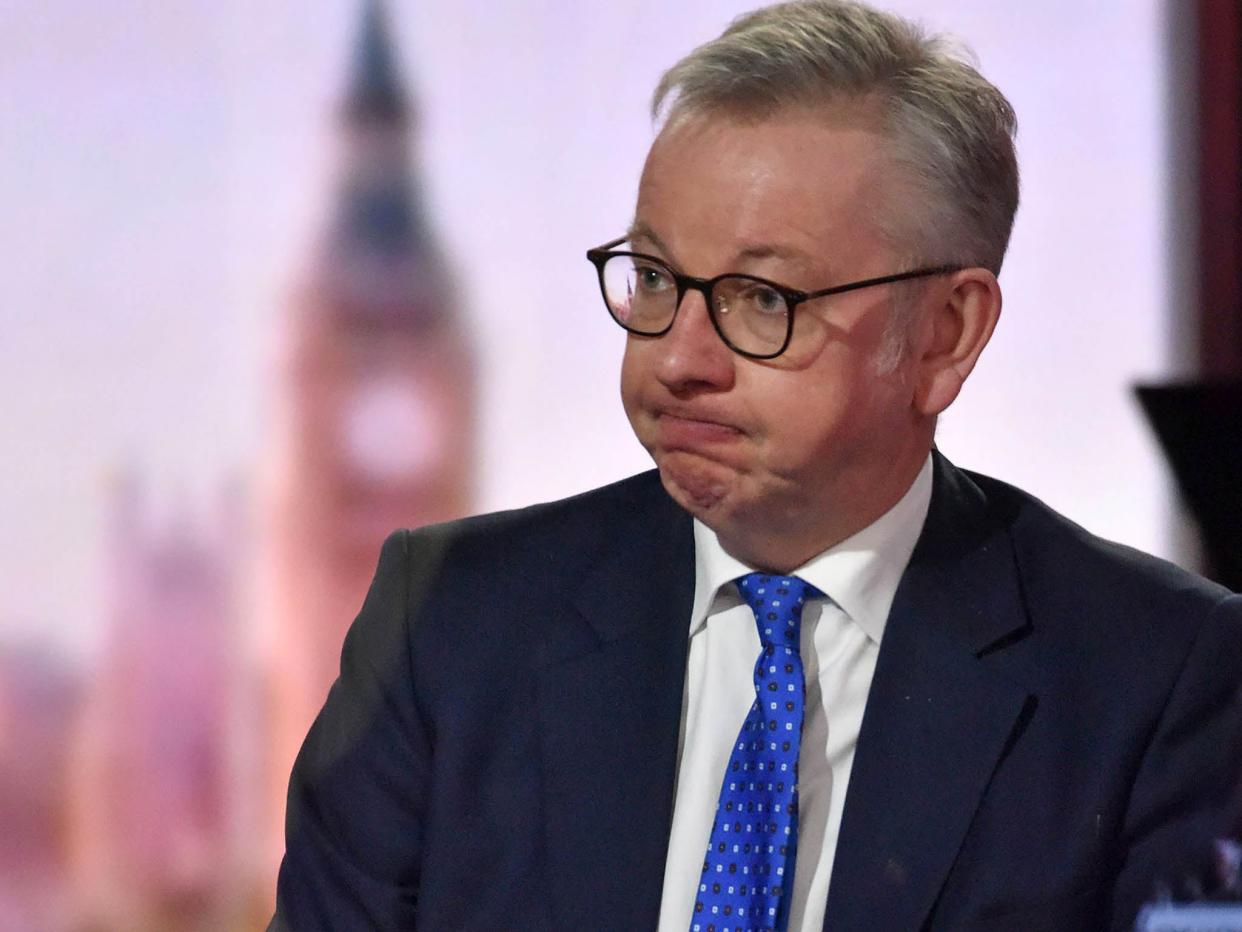Coronavirus: Michael Gove defends £7,000 day rate for some Test and Trace consultants

Michael Gove has defended the up to £7,000 a day rate paid to some executives from the Boston Consulting Group (BCG) for the government-funded Test and Trace programme.
When asked whether the expenditure was a good use of public money, the Minister for the Cabinet Office replied “yes.”
The BCG are helping the government set up and run its ailing testing system around the UK.
Last week, Sky News said it had seen documents revealing the group was paid £10 million for around 40 consultants working the four months between the end of April and late August.
It was reported that the Department of Health and Social Care (DHSC) received a 10 to 15 per cent discount from BCG, whose senior consultants usually charge between £2,400 to £7,360 a day rate for public sector work.
Anthony Costello, a member of independent Sage group of scientists, described the figures as “shocking”.
Asked about the spend on Saturday on the BBC’s Andrew Marr Show, Mr Gove said: “Two things – firstly, it’s absolutely vital that we have all the expertise required from the private and public sector in order to improve testing.”
He added “As I pointed out earlier, we have a higher level of testing in this country than in any other European country, we’re improving contract tracing all the time. Local health protection teams are doing particularly well in that regard.”
“Separately, I've been clear as my colleague Lord Agnew in the Cabinet Office has, that we need to reduce our spend on consultants overall,” Mr Gove said, “in the meantime, we'll do whatever it takes to make sure that we protect the NHS."
The flagship Test and Trace system is becoming increasingly ineffective, as cases rise once again, government scientific advisers believe.
Last week, Baroness Dido Harding, who was handed the job of leading NHS Test and Trace, said in a rare interview that the system is not a “silver bullet.”
“It has never been and it never will be. The virus unfortunately doesn’t behave in such a way that there is a silver bullet,” she told The Sunday Times.
“The only way that we’re going to learn how to live with Covid is through a number of different interventions, of which Test and Trace is undoubtedly a very important one.”
The last week saw another record low for contact tracing, with just 62.6 per cent of contacts reached. The system needs 80 per cent contact tracing to be effective.
The programme has come into further criticism for the financial benefits reaped by private companies involved.
Serco, an outsourcing company hired by the government, revealed last week that shares in the company had surged by 18 per cent with it predicting an underlying profit for the year of between £160 million to £165 million.
While Serco announced their expected bumper profits, the Test and Trace system had delivered its worst ever performance.
The failing system has cost more than £12 billion so far and Labour have said the latest figures show that Test and Trace is “on the verge of collapse”, urging for a short “circuit breaker” national lockdown to restrict transmissions.
Shadow Cabinet Office minister Rachel Reeves said: “We are at a decisive moment in our efforts to tackle coronavirus, and these figures are a new low for a test and trace system on the verge of collapse.”
Read more
Police to be given test-and-trace data to help enforce isolation rules
Serco profits to surge as test and trace records worst ever week
UK Covid Test and Trace system records worst ever week
Under-fire test and trace system is envy of the world, Hancock claims
Gove rejects calls for immediate ‘circuit-breaker’ national lockdown


